It’s a kid’s m.o. to play; it’s how they learn and walk through life. But we adults need to play, too, and some of us (🙋♀️) frequently forget how. Play benefits our health in all sorts of ways, but it’s also just …fun. That’s a gift. Being a real, responsible adult doesn’t mean taking everything seriously. Let’s play more!
Seth: Newsletter | Twitter | Instagram | Website
Tsh: Newsletter | Twitter | Instagram | Website
Pick up the next round of drinks — help keep the show going!
Subscribe to the show’s Substack
Find all the episodes
Tsh’s Rule of Life workshop
Leisure: The Basis of Culture, by Josef Pieper
Interior Castle, by St Teresa of Avila (selected passages)
An Elderly Lady is Up to No Good, by Helene Tursten
Scroll down for the transcript
Tsh: It’s A Drink With a Friend, I’m Tsh Oxenreider.
Seth: And I’m Seth Haines.
Tsh: Seth Haines, what are you drinking?
Seth: Essentia, over-achieving H2O. It’s really high-brow water.
Tsh: Like bottled water?
Seth: Every time I look up, stuff falls from the sky and you guys slap a fancy name on it and some Swedish symbol and say it’s over-achieving, and all of the sudden it’s a million dollars. One million dollars. Just so you know and the listeners know, it is ionized hydration. It has a pH of 9.5 or higher. It’s over-achieving so maybe it’s higher than 9.5. I think that’s like 95%, that’s an A+.
Tsh: Good for it, I guess.
Seth: And it’s purified so it says.
Tsh: You know what? I watched this YouTubers travel video this past week when he and his family went to Iceland and he said that you literally cannot buy bottled water in Iceland. It doesn’t exist. He and his family did the RV renting thing. They would pull over and fill up their water bottles in a stream like we did in the olden days. That’s what they still do in Iceland because the water is that great and there’s no point in selling it because it’s not better than what you can get outside. I thought that was cool.
Seth: This sounds like an Oregon Trail saga. Your family pulls over in the RV and drinks water from the stream and gets…
Tsh: I was going to say, what do you die of on Oregon Trail, you die of a million different diseases.
Seth: All kinds of things. Maybe they have that over there. Anyway, we’re digressing big time. What are you drinking today?
Tsh: Mine is just as exciting. It is water but with bubbles in it. I’m drinking sparkling water with coconut. HEB brand, as always.
Seth: That sounds amazing. Sparkling water with coconut. I find that coconut is really a polarizing flavor.
Tsh: It is, but I like it. I’m pro coconut.
Seth: I’m pro coconut, too. People either love it or hate it. I really like, there’s another brand that I will not mention because I’m not drinking it, a sparkling water that I really like with coconut in it but everyone I know that drinks it says it tastes like it leaves a film on their mouth.
Tsh: One of the reasons I like this one is because my son who drinks sparkling water does not like this one so he leaves enough for me in the fridge. You know how the kids will drain the groceries you just bought? He does that with other flavors but not this one.
Seth: Not coconut. Tell Kyle, way to be a good man and not drink all your water.
Tsh: [laugh] Right. Okay. For the listeners, for us too, we are in the midst of summer, for our northern hemisphere listeners, I should say that. We’re in the midst of summer. We’re in the midst for most of us, a school break for our kids. It’s kind of vacation time. You and I are about to take a short, planned podcasting hiatus and we’ll be back closer to the start of the school year but for these last two episodes before our break, we thought we would talk about what’s on our mind anyway. It’s a two-for talking about rest and play. In this episode, we thought we’d start off with play. I’m going to lob the ball over to you, Seth, tell me what your thoughts are about play as an adult, in your adult life.
Seth: I feel like so often whenever you lob things into my court, I have to confess that I’m super good at whatever it is. Whether it’s rest or whether it’s play or whether it’s boundaries or whatever. I tend to be pretty hard-charging. I wish that weren’t true. But I will say, the older I get, the more I understand how important this really is to my own rhythms of health. There are some things that I probably consider play that others don’t. Like going to the gym, to me that’s play. It’s fun for me. It’s kind of game-ified to an extent. There’s a communal aspect. We’re doing something that is seeming frivolous. There are other ways to get exercise, right? Other than jumping on boxes and throwing big balls around. I guess to an extent, it’s a type of play. It really frees my mind a lot. It takes the edge off of that thinking, thinking, thinking all the time. There’s that. I also have been fishing a lot more lately, mostly because my oldest son is really gotten into fly fishing. He’s terrifically good at it. We do a lot of fly fishing in streams and creeks and we’ll go to the White River and fish for trout. That’s really taking up a lot of our summer. That kind of getting out and getting away and letting your mind wander and be free, it’s a huge part of me not feeling so confined and trapped and working all the time. To me, play is a huge component of my life even though I’m not as intentional about it as I should be. What about you?
Tsh: One of the reasons I even wanted to talk about this today is because I admittedly suck at playing. I am far too grown-up for my own good and the reason is because I treat play like we often treat Sabbath which is something that should be earned. Do you know what I mean?
Seth: Yes.
Tsh: Play is for when you get things done off your to-do list. If you’re not done with that to-do list it’s not time to play, which is ridiculous because we all know the adulting to-do list never ends. There’s always something to do. I’m not doing it on purpose but there’s always a kitchen counter that needs wiped. There’s always an email to respond to. There’s always something that needs folding or an errand needing running or whatever. I just don’t play like I should. Here’s the thing. I know it when I need it because I become a curmudgeon or I am not very good at gratitude. I don’t stop and smell the roses, literally or metaphorically and I’m probably not much fun to be around. It is apropos for me that we’re talking about this in July because July for me, traditionally, is the month when I slow way down in my work. I’ve been self-employed for twelve, thirteen years now so I’m the boss of my own schedule which has its pluses and minuses and I learned, let’s see, 2019 is when I took my for real sabbatical when I truly did not work for a month. I learned how much I needed that and one of the reasons is both the rest, which we’ll talk about next week but the play aspect. I just wasn’t making time to play. Every year since then I’ve tried to incorporate this time of year, a little more play in my life. I know our ten-year-old selves, our five-year-old selves would just be laughing at us incredulously, what do you mean? Add more play to your life, that’s just a natural thing we used to do as kids. We didn’t have to work at playing. That was your way of learning, that was your M.O., my M.O., how we went through life. My adult self, being the nerd I am, has been thinking about, what is play even? Getting philosophical about it, what does it mean to play? Why is play for you going to the gym and someone else that would be a form of torture? What do you think play is? Is that a weird question?
Seth: I don’t think it’s a weird question. I think play, for me, at this part of my life is anything that’s done sheerly for the pleasure of doing it. Everything in my life has some sort of, it feels like, very practical and really for the most part and part of this is because the role that I function in my family, for the most part, some monetary function. I go to work to do something that is monetary. I write and I love to write, but a large part of what I do in writing to make money to feed my family. We do things that we love to do whether it’s podcasting or photography or whatever. All of us have different things that we do that would feel almost like hobbies but really it’s all about what? It’s about somehow building a platform or building an income base or building whatever. For me, when I look at play what I think about it is what am I doing for the sheer joy of it that doesn’t make me any money and that the end of the day just brings me happiness and lightens the load. I think that’s how I think of as play. Again, to go back to childhood. How did we mark play in childhood? It was a time where our parents weren’t asking us to do chores. We weren’t cleaning the kitchen. We weren’t feeding the dogs. We weren’t making the beds or vacuuming the floors. Instead, we were at the lego box, using our imaginations and building things for the sheer joy of just building things. To me, I think that’s what characterizes play is just that sheer imaginative joy.
Tsh: Right. I’m laughing right now because I’m looking up this psychologist’s website, they’re defining play and this is such a psychological way of thinking of play. It says, “It’s a complex set of behaviors characterized by fun and spontaneity. It can be sensory, neuromuscular, cognitive, or any combination of the three. It revolves repetition of experience, exploration, experimentation, and imitation of one’s surroundings.” That is the science-y way of saying what you just said. It’s characterized by fun and spontaneity but there’s also some repetition. To me, anything you’re doing within this realm where the end is of itself. It’s not a means to an end. I think that’s kind of what you are saying. Writing for the sake of feeding your family versus writing for the sheer joy of it which is the end, its own end. We’ve talked about this before, I think I actually sent this book to you guys, you and Amber. Leisure: The Basis of Culture. Have you ever read it?
Seth: I don’t remember it, but yes. Show me the cover. You did send that to us.
Tsh: Okay.
Seth: But I have not read it.
Tsh: No big deal. Read it at some point. It’s going to blow your mind. This is a book that I want to read every couple of years. This was probably my favorite non-fiction book from 2020. It’s really heady. It was written in the late 40s and I had to read it really slowly. This is a German philosopher. Man, is he smart. This is a book that’s talking about Leisure: The Basis of Culture. His point is this idea of what we do so that we don’t have to do things anymore is the definition of the world we want to create ultimately. I’m just going to read a few phrases here and there. There’s no way this even really can describe this book. It says, “Leisure is only possible when a man is one with himself when he acquiesces in his own being. Whereas the essence of acedia is the refusal to acquiesce in one’s own being.” He’s talking about how leisure is the opposite of acedia. Acedia is the vice of sloth, laziness. But it’s not just not feeling like doing something. It’s not having the will for having good in your life. Intentionally not actively seeking out good. He’s saying that leisure is the opposite of that. In a way you work for leisure but not in a traditional way we think of work where it has to be hard. It’s something you are seeking out. That’s why going to the gym can actually be fun. It doesn’t mean the easiest thing possible. He says, “It is in the first place an attitude of mind, a condition of the soul. It means not being busy but letting things happen.” He goes on and on. It’s such a good book. In my mind, when I think of play, really what I’m wanting is more leisure in my life. I think we’ll talk about leisure in the resting sense in the next episode, but in this sense, I’m thinking of leisure in the playful sense like what truly actually brings my heart and soul to rest even if it’s physically exhausting or mentally exhausting because it can be all those things yet it’s still play. You know?
Seth: Totally. 100%. To me, when you say leisure, that actually clarifies things for. It’s hard for me to say what is play and what is not play. I think part of that is just because as adults we sort of remove that from our vocabulary. That’s things that kids do. Kids do play. But when I think of leisure, that really opens up my imagination of play. I think about going for a walk with Amber can be leisure. It’s a form of play. When we walk around the neighborhood, we talk about ideas and dreams and goals and we laugh and we tell jokes and we act like little kids a lot of time. I think that’s the very definition of what it means to be at play in the world. Which by the way, would be a great book title, At Play in the World, riffing off your last book, you should write that book.
Tsh: I like that, actually. That could be something. Oooh. That’s kind of fun.
Seth: When I think about your experiences in travel, it feels like a lot of it is marked by and characterized by play.
Tsh: And how we’re Americans who were known for working long hours. We’re known for a form of play that’s just tawdry, I would say, the ridiculous shallow kind of play. This isn’t to throw our culture under the bus, there’s some good things about it, I guess. But you and I have both experienced in different cultures the way play can happen that almost feels like it’s woven into the fabric of how they think about life. I think we talked about this, when we were in Italy and how there would be signs on storefronts that just said, “Store’s closed for two weeks because we’re on vacation.”
Seth: Yes, right. And we laughed about that, how do you do that?
Tsh: How do you stay in business? This village clearly understands, oh, they’re going to go visit their relatives in this other village and it will be fine, we’ll make do.
Seth: Totally. There was a guy on that trip. Do you remember the leatherworker?
Tsh: Yes, you had a good conversation with him. I was in another store, I came in at the very end.
Seth: It was such a good conversation. He was just saying that as Americans that we’re always focused on productivity and that he takes the time to handcraft all of his little leather goods in his shop and to sell them to tourists when they come in or to sell them to local people when they come in. He creates enough to provide for himself and that’s enough. He was fine with that. Just saying getting back to the analog practices of everyday creation and not trying to scale and not trying to digitize everything and not trying to get your name splashed all over the great big building, how that actually was very freeing for him. It was a totally different way of seeing the world.
Tsh: It really is a game-changer if you can start thinking about the act of doing things itself as a form of play. There’s that one psychologist, I’m going to completely butcher his name so I almost don’t even want to try. He’s got like seventeen syllables in his last name but he’s the one that talks about flow. Do you know what I’m talking about?
Seth: Yes.
Tsh: Okay. That’s what comes to mind here is this leatherworker really embodied the idea of flow. He got lost in his art and craft. Yes, he made money doing it but I’m sure he would make things out of leather even if he didn’t sell them because he enjoyed it. I think when us adults are thinking about the day, a long to-do list, we’ve got kids to feed, how on earth can I add something just for the fun of it? There is something to be said about that. If we truly are not finding any time within a week to just do something for the fun of it, we should reprioritize but what might it look like to make the things we have to do anyway more playful? Approaching cooking as a form of play. Approaching even interacting with each other as a form of play, not that it needs to be silly and immature but like what you and Amber say going on walks, we went on a date last night, Kyle and I. We noticed on our way home, walking home, we did not talk about the kids and we didn’t talk about our upcoming trip to visit family or house repairs. All these things that we do need to talk about but we just had fun and it was really great and we needed that because we don’t do that enough.
Seth: When I think about the notion of leisure and play and doing things with our spouse just to do them that don’t have a practical effect, a lot of these things a lot of times feel very western. Oh, you’re so whatever that you can play and you can spend time with leisure. One of my favorite stories that I’ve ever been told is about play. It’s a very dangerous form of play, we’ll talk about that. It comes from a context where survival matters. It was a context that did not have a lot of money. It was in Ethiopia, it was in a particular region in Ethiopia that is populated by camel herders, this is what they do. They herd camels. If you know anything about herding camels, it’s very difficult work, it’s not easy. It is a deserted region called Afar and there’s not a whole lot of water there. You have to walk a long way to get water. Day in and day out is filled with you wake up early, you walk to the well, you get enough water for your family, you carry the camels to the watering station, you take them back. It is hard, hard living. When I was with a guy in the Afar region named Garet, I just said this is such a harsh environment, harsh conditions, do you guys ever have fun? Is there ever a time for you to have fun? He just started laughing. He said, we play a lot. I said, what do play, what does that look like? He said, we have all kinds of sports but the best sport that we’re known for is a game called ball. I was like, oh, how do you play ball? I don’t know if this is true or not because I never saw anyone play ball but this is the story he told. You would take a group of rags or something that’s a makeshift ball, about the size of a tennis ball and you run around, there are goals on either side kind of like soccer. You run around and you bounce it on the top of your hand. If you can imagine running while you’re bouncing a rag ball on top of your hand, you can’t hold it. If you hold it, it’s a violation and you get a free shot. You try to bounce it in the air and slap it into the goal. I said, that’s a really fascinating game, what are all the rules? He said, other than the bouncing rule, you have to bounce it on your hand, there are no rules except one. I said, what’s the one rule? He said, if there’s a kill, there can be no retaliation.
Tsh: Oh my gosh.
Seth: I was like, oh, a kill. Like a kill shot? Like in volleyball or whatever, a spike, right? He was like, no, a kill. I said, what do you mean? He said, around the ball courts there are thorny bushes that, I stepped on one by the way, it went straight through my shoe and into my foot. These things are like iron. If you’re playing ball and you block somebody and they fall into the thorn bush and they die, their tribe cannot retaliate against your tribe. There’s no retribution for playing ball. I said, do you ever play ball, Garet? He said, no, no, no. It’s way too dangerous for me.
Tsh: [laugh]
Seth: We had a good laugh about it. My guess is not too many people die playing ball but the point that he was making is even in these harsh conditions, even in these places where it’s not leisure, it’s not privileged, it’s not money laden, they still take the time to go out and have fun and to do things that take their minds off the harshness or the reality and I think that’s a really beautiful thing. If a culture that struggles to survive in the desert needs play, how much more do we need play?
Tsh: For sure. We, as humans are hard-wired to not work all the time. If we keep trying to work all the time, it’s not going to bode well for us. First of all, that game actually, except for the kill part, sounds fun. It sounds like a good street game.
Seth: Totally.
Tsh: When I think of the way we are as kids, what we said at the top of the show, that you don’t have to teach a kid to play, it’s just ingrained in us as humans. It’s hardwired for us to learn through play when we are younger that at some point the necessities of life and responsibilities work their way out of us to where we have forgotten how to play. It reminds me of, remember that movie in the early 90s, Hook, with Robin Williams, how he’s forgotten how to play? To me, it looks a bit like that. We just simply, as adults in this western world, need to learn how to reclaim play. We need to learn what it looks like to play ball in our life just for the heck of it. Not because it’s continuing education or because it’s going to be a side hustle but just for fun. We’ve talked about walks with our spouses and families, we’ve talked about date nights and we’ve talked about working out or just doing that thing that might seem like work to someone else but is fun to you. What else would you say qualifies as fun if someone’s listening and thinking that all sounds great but I can’t even think of an idea?
Seth: There’s a spiritual director here in town and she’s created this amazing curriculum. It’s called IPP and it’s for Ignition Prayer Practices. It’s a really good curriculum. In that curriculum she has included coloring sheets as a form of meditative prayer which I kind of poo-poo’d, I’m not going to lie. I was like, I’m not going to color these sheets. This is frivolous, we’re praying. I had a friend who joined me for IPP and he mentioned that taking the time out of even the prayer practices to methodically color these pictures as a form of meditation, actually really freed up his mind to get away from the day to day chores, the everyday part of living, the stresses with his family, the stresses with his finances. It actually really freed his mind to enjoy himself and to enjoy the moment. I think that’s probably a big part of why those adult coloring books were such a big deal a few years back. People would pick them up and they would just spend hours coloring and it was a form of adult play.
Tsh: It is.
Seth: To do these coloring books. I never got into that but I think that’s an idea. I think things like fly fishing. Things like going on a hike, trail running. Things like learning how to do origami for the heck of it just because it’s weird and fun to fold square pieces of paper. I have a friend right now who is watching Lego Masters on Netflix, is that what it’s called? Lego Masters?
Tsh: Uh, huh.
Seth: She’s saying her whole family has gotten back into building legos, adults and all. There’s something to that, too. Just sitting down as an adult and saying I’m going to create a fun lego set or a model or whatever, it has no value to my life other than it’s just fun. I think there are hundreds of ideas there. I think a lot of it just takes stopping long enough to go back and say how do I get in touch with my childhood self? What are the things I liked to do as a child and how can I do those again?
Tsh: That’s actually going to be the main takeaway I was going to say. Whenever you feel stuck, actually stop and think about what did I like to do for fun as a kid? Legitimately ask yourself what does that look like as an adult? If you did like to color in a coloring book perhaps that looks like taking a water coloring class now. That doesn’t mean you’re always some kind of Picasso and you’ve never tapped into that. That’s thinking too hard about this. Consider what is in your core DNA a form of fun and what would that look like now? If you were a tree climber and spent all summer long outside barefoot that maybe your adult self does look like going on more hikes? Finding a natural body of water and getting out there. If you played sports a lot as a kid perhaps that looks like finding some community running club or intramural team of some sort and figure out what the child in you would look like as an adult now. I’ve heard this really great bit of advice that says the only two people you should aim to impress are your five-year-old self and your eighty-five-year-old self so you’re thinking about who were as a kid as well as who near the end of your life looking back. That might be something to tap into. How do you want to impress your five-year-old self here? I say this to myself more than anyone not because I have mastered this topic at all, like I said, I have a hard time giving myself permission to just play. I’ve actually thought about since we’re about to go on a work break, what would it look if I give myself permission to do one, if I were to make a list of things that I think are fun, one small to medium thing for fun a month and then one bigger thing a year. Whether that’s a vacation or not, just some form of fun that it’s the only reason for doing it is the end in itself. Perhaps just making that, for those of us who are, I wouldn’t call myself checklist minded but maybe I am more than I want to admit and that makes me feel like okay, I am adding more fun to my life. Take it or leave it if you are of that fabric as well.
Seth: I think that’s a great idea. That’s one of the things that I found, the older I get the more I like the same kinds of play that I liked when I was five. In fact, last year, I climbed a tree just because I hadn’t done it in a long time and I thought, I wonder if this is as much fun as it was when I was five. You know what? It was.
Tsh: Did it hurt, though? [laugh]
Seth: No! It was great. It was nice outside, it was kind of cool, it was COVID so I wasn’t seeing anybody, I wasn’t threatened by anybody driving by or seeing me climbing a tree six o’clock at night and I went and climbed a tree with my kids and it was a lot of fun. I highly encourage tree climbing. But also, like you said, I think that’s really smart. What are the things that you liked when you were five and how do those things evolve as we get older because things do evolve. Life does evolve. Again, if you liked making paper airplanes as a kid maybe that looks like building models or maybe that looks like origami or maybe that looks like sketching and drawing? Those things can bring a lot of life if we take the time to do them. Really, play doesn’t have to take a lot of time.
Tsh: That’s true.
Seth: It can be five minutes.
Tsh: It can be five minutes. It needs to be tucked into our day, it’s a mindset more than anything. I feel like if you’re stuck on an idea you really can’t think of anything. My go-to when I’m working on my list of things for fun, is going to a coffee shop with a book and not a device. To me, the permission just to read a book for fun. Maybe I’m not even bringing a pencil or a highlighter to mark in it. I’m just reading it for fun. I can’t be on my phone or computer even if I wanted to. I’m talking thirty minutes, not long. Just sitting with a book for the heck of it. Maybe that’s someone’s default fun if you truly can’t think of anything else.
Seth: I like it.
Tsh: I think this is a good segue into the things adding more beauty to our life. Seth, what is adding beauty, fun of some form, to your life these days?
Seth: At church, we go to Adoration once a week. For those of you who may not know what Adoration is, it’s essentially a prayer hour where you go and you sit before a consecrated host and you pray. Outside of our little Adoration chapel, there’s a library so you can pick up a book if you want to, do some spiritual reading, or whatever. There was a copy of selected passages from Teresa of Avila’s Interior Castle, which I’ve read before but I don’t think I was in a space to fully appreciate it and there are a variety of reasons why I am in the space to appreciate it more now. I picked it up and it just really framed up perfectly with some things that I’ve been thinking about freedom. We had a moment a few weeks ago where our priest said we all have freedom and we’ve been given the freedom to choose life or freedom to choose death. Every choice in your life falls into one of those two categories. Are you choosing death or are you choosing life? As I’m reading Interior Castle again, I’m realizing that’s really all she’s saying. All she’s saying is that the life of prayer is really about the life of choosing life and choosing to enter deeper into life and choosing to walk away from death and as you get closer into the Interior Castle of your heart, that’s what you find. It’s bringing a lot of clarity to me right now. Honestly, she’s just a great writer. The segues where she’ll write little sentences to the nuns in her house, it’s just really funny to me. She’s a little self-effacing and very bold. It’s really hitting me where I am right now.
Tsh: That’s cool. That’s been on my TBR list for a long time, I have not yet read it.
Seth: For me, the fact that it’s the selected passages is actually made it a little bit easier, there’s a little bit of commentary in it. It makes it a little bit of an easier read and maybe that’s why it’s meeting me where I am, too.
Tsh: Cool.
Seth: Look it up, it’s great stuff. What is one thing that is bringing a little bit of truth, beauty, or goodness to your life watching, reading, listening to, or whatever? Maybe none of the above? Maybe tasting?
Tsh: That would be a good category. This is not really, if we’re talking about fun here, play, if we’re talking about play really truly being sacramental because it leads us to the beauty, goodness, and truth of life, this fits in that category. This is not purely about something true or good. It’s just for fun. This is a book, a collection of short stories that I read with my subscribers in June. Those of you listening, you already know what I’m going to talk about. It is a book called, An Elderly Lady is Up to No Good by Helene Tursten.
Seth: [laugh]
Tsh: It’s this little bitty pocket, it’s a tiny book. You can read it in one sitting, maybe two. It’s a collection of five stories. It’s from Sweden and translated. It is hysterical because it is about an old lady who is also a serial killer.
Seth: What!?!
Tsh: It’s so funny and that’s what the title means. If you look, even the cover is hilarious. It’s cross-stitch with skulls and needles and stuff. It’s so dark but weird and Scandinavian and it was just right what I needed in June. I needed to read something that was just for fun and just silly. The woman’s name is Maude. I think she might be a sociopath.
Seth: The writer?
Tsh: Noooo, the protagonist, the elderly lady.
Seth: Oh, yes, okay.
Tsh: It’s about this woman who is single, long been single, has no family at all still alive and she just lives in this apartment rent-free because she inherited it from her dad and there was some weird clause so she basically hardly has to make any money and all the money she inherited she gets to travel. She basically offs people that annoy her or that she would consider immoral. It has that Dexter quality like she’s going after the abusive husband upstairs or the guy who’s trying to rob her of her art collection so she maybe could justify it. It’s so weird and dark and funny and well-written. It’s just fun. If you’re in the mood for five short stories that read like a novella because it’s all the same character and the same concept, I would recommend picking it up. It’s An Elderly Lady is Up to No Good by Helene Tursten.
Seth: Alright, that sounds great. I kind of want to read it now, not going to lie.
Tsh: Alright, it’s time to wrap this up. You can find this episode, as well as all episodes, at adrinkwithafriend.com. If you like what we’re bringing to your week, you can help keep this podcast alive and active by picking up the next round of drinks! This show is free for you to listen to but it’s not free for us to make, so at the cost of a cup of coffee or a pint, you can play a big part. Find the link for how to do this in the show notes of this episode, or at adrinkwithafriend.com, and thanks in advance. You can find me and all my work, especially my newsletter and books, at tshoxenreider.com Seth, where can people find you?
Seth: You can find me at sethhaines.com.
Tsh: Music for the show is by Kevin MacLeod, editing is by Kyle Oxenreider, and Caroline TeSelle is our transcriber and assistant extraordinaire. I’m Tsh Oxenreider with Seth Haines, and we’ll be back here with you soon. Thanks for listening.



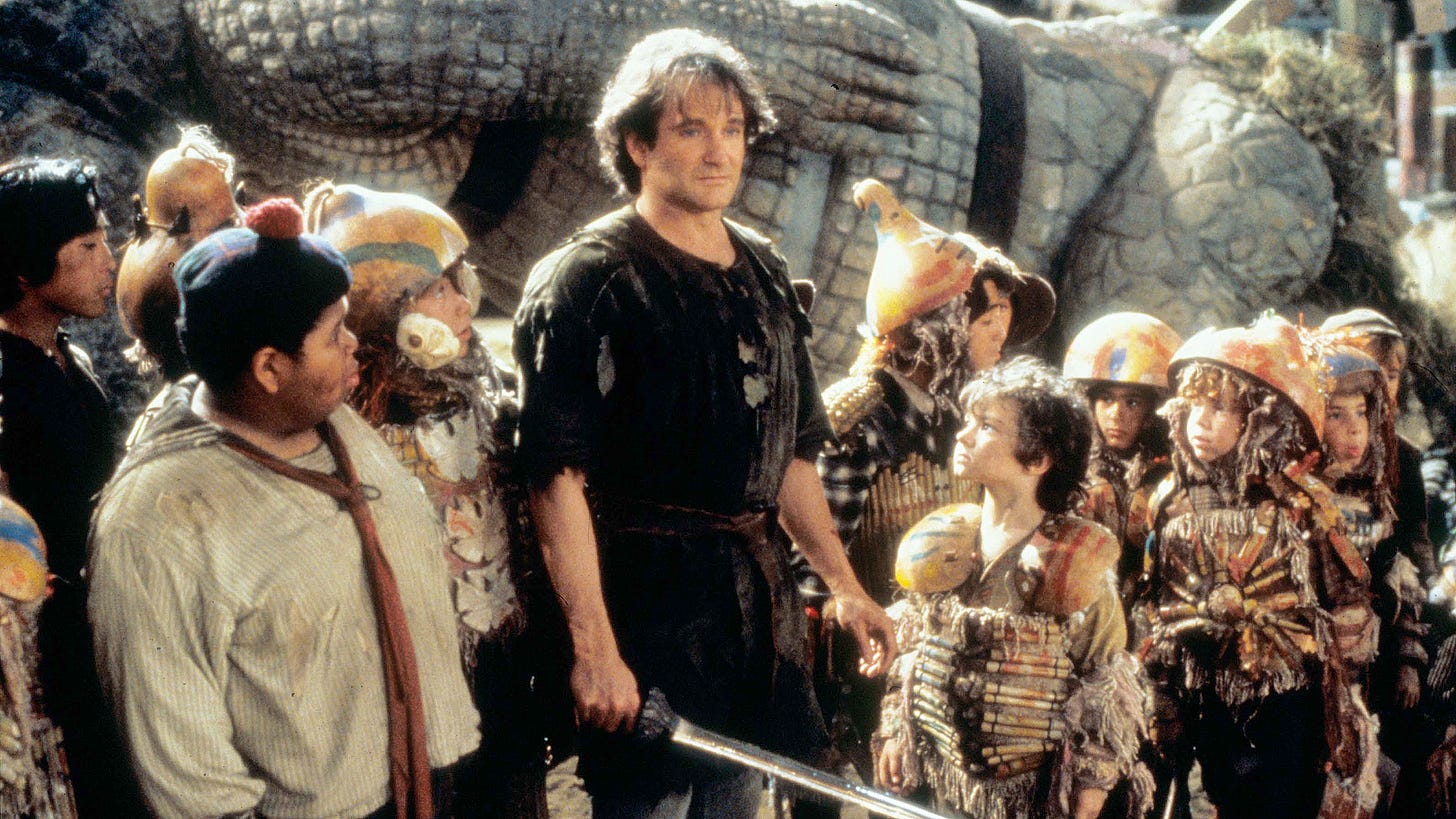





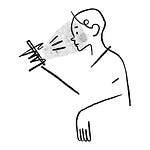
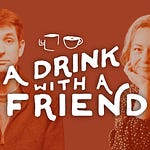
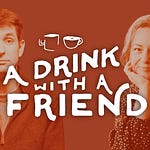
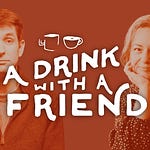
Real Play